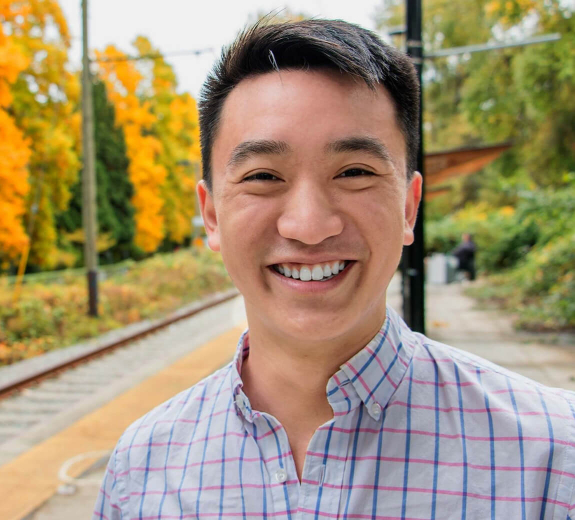Over time, Ryan learned how to handle his allergy and asthma. But he’s also learned to live with hope, alongside nonstop vigilance, through his participation in the hopeful world of clinical research. While studying biochemistry at the University of Washington, Ryan joined a clinical study at the encouragement of his pulmonologist. The experience complimented his academic interests and opened him up to the opportunities available through clinical trials.
After graduating, he took a role as a research coordinator with ASTHMA, Inc., a specialized clinical research center, where he was first exposed to BRI. The first study he coordinated was designed to see if a drug could reduce the number of allergy shot treatments required for people allergic to cats. It was a partnership with the Immune Tolerance Network headquartered at BRI - a connection that would soon prove quite auspicious.
After a scary, accidental brush with peanut oil during a ski trip, Ryan’s doctor urged him to consider joining a new oral immunotherapy study for peanut allergy.
“ASTHMA, Inc. was actually one of the study sites, but only for pediatrics,” Ryan says. “The adult study was being conducted at BRI, so I knew exactly where to go.”
For Ryan, the decision to join the peanut allergy study was not an easy one. First, his tolerance would be measured by exposing him to peanut protein in increasing amounts until he had a severe reaction. Then, while on the study, he would have to eat a small, but increasing amount of peanut protein every day for the duration of the study, “just the thought of which made me feel nauseous!”
The goal of the study is to see whether incremental exposure can increase an individual’s tolerance to peanuts over time. While not a cure, an increased tolerance could reduce the severity of a reaction, potentially affording severely allergic patients more time to access treatments, like epi pens, in an emergency. All testing is overseen by allergist and Principal Investigator David Jeong, MD, in Virginia Mason’s Clinical Research Center (CRC) - an eight-bed unit of the hospital reserved specifically for clinical research patients.
“Ultimately,” says Ryan “the selling point for me was my love for travel and the concern about food safety when eating out. Any increase in tolerance would make it easier should an exposure happen away from home.”
Over the course of the peanut study, Ryan grew close with his research team and coordinator, Kit Wilder. Aware of his interest in research, Kit told him about a coordinator position that had become available in the cancer clinical research program. Ryan applied for the position, accepted the job and joined the research team - all while still enrolled in the peanut study.
Today, Ryan coordinates several early phase cancer studies designed to see how new medications are tolerated by patients. They are often administered in the Clinical Research Center where Ryan was once a patient - an experience that has directly impacted his work.
“The experiences of my cancer patients are different from mine, but I can directly relate to what they are going through,” he says. “This has definitely helped me form deeper connections and empathy for all of my patients.”
Ryan is currently in the process of applying to medical school, leaning toward becoming a medical oncologist. In his spare time, he volunteers as a skiing and rock-climbing instructor with Outdoors for All, an organization that helps children and adults with disabilities get involved with outdoor recreation. Regardless of his ultimate career path, Ryan is quick to emphasize the vital role of clinical research.
“You hear about incredible breakthroughs in science and medicine, but they are only one of many steps,” he says. “Clinical research is critically important to help us assess our options and improve the way things are done.”
All clinical research at Virginia Mason is overseen by the Benaroya Research Institute. Learn more about our clinical research.




